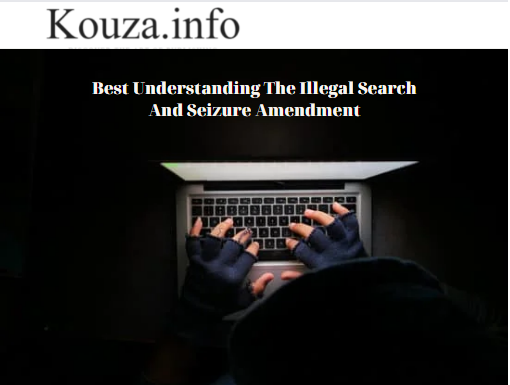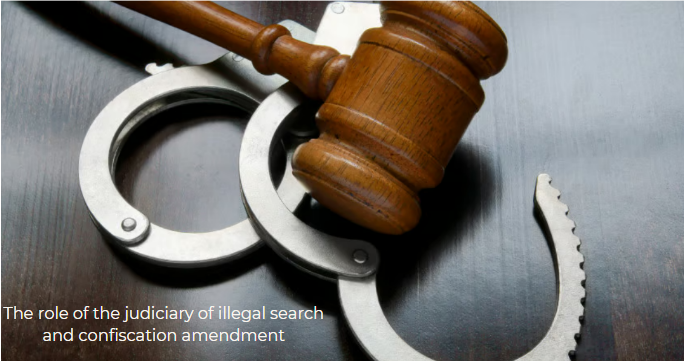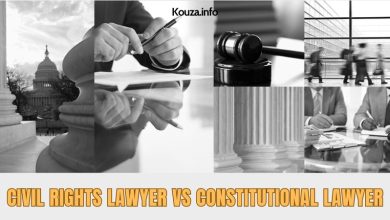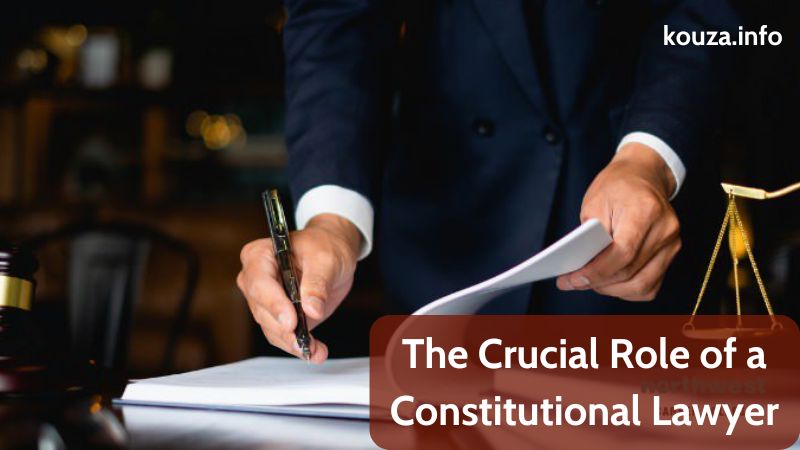3 Best Understanding The Illegal Search And Seizure Amendment

Understanding the principles of illegal search and seizure is crucial in ensuring that one’s rights are protected, especially in the business world. Business law is complex, and often, companies may face legal issues that relate to illegal searches conducted by the authorities. To navigate such situations effectively, it is essential to have a solid understanding of the illegal search and amendment, which outlines the protections and limits of government officials’ search and seizure powers. In this article, Kouza.info will explore the best ways to understand the illegal search and seizure amendment, and how it relates to business law.
1. What is the illegal search and seizure amendment?

The illegal search and seizure amendment is part of the Fourth Amendment to the United States Constitution. It is a critical protection of individuals’ privacy rights against unreasonable searches and seizures by government officials, including law enforcement officers.
The amendment provides citizens with the right to be secure in their persons, houses, papers, and effects against unreasonable searches and seizures, and requires that warrants be issued only upon probable cause, supported by an oath or affirmation, and particularly describing the place to be searched and the persons or things to be seized.
The amendment aims to balance the need for law enforcement to investigate criminal activity and protect public safety against individuals’ rights to privacy and freedom from unreasonable intrusion. It serves as a check on the government’s power to invade an individual’s privacy and conduct searches without proper cause or legal authorization.
Additionally, it requires that any evidence obtained through an illegal search or seizure be excluded from any criminal trial as “fruit of the poisonous tree.”
However, the amendment does not provide absolute protection against all searches and seizures. Certain exceptions exist, such as when an individual consents to a search, or when there is a risk of imminent harm or danger to others.
Also, the law permits certain searches and seizures without a warrant, including searches incident to a lawful arrest or a search for evidence in plain view.
2. The role of the judiciary of illegal search and seizure amendment

The role of the judiciary in the illegal search and seizure amendment is crucial in ensuring that individuals’ rights are protected and that law enforcement officials comply with the law.
The judiciary’s primary role is to interpret the Fourth Amendment and apply its protections in individual cases. The judiciary is responsible for determining whether law enforcement officials have violated an individual’s Fourth Amendment rights and whether any evidence obtained through an illegal search or seizure should be excluded from trial.
The judiciary also plays a role in shaping the development of Fourth Amendment jurisprudence. Through their decisions, judges can establish precedent, clarifying the scope and limitations of the Fourth Amendment’s protections. Over time, these precedents shape the law, influencing how law enforcement officials conduct searches and seizures and how prosecutors build their cases.
Furthermore, the judiciary plays a role in overseeing the warrant process, which is critical in ensuring that searches and seizures are conducted lawfully.
Judges review warrant applications to determine whether law enforcement officials have established probable cause and have described with particularity the places to be searched and the items to be seized. Judges can also issue warrants ex parte, meaning without the presence of the individual whose property is being searched, in cases where there is a risk that evidence will be destroyed.
3. Impact of illegal search and seizure amendments on law enforcement

The impact of illegal search and seizure amendments on law enforcement is significant as it sets limits on the government’s ability to investigate and prosecute crimes. The Fourth Amendment requires that law enforcement officers have probable cause and a warrant before conducting a search or seizure, which can limit the scope and frequency of searches conducted by law enforcement agencies.
The amendment also provides procedural safeguards for individuals, ensuring that law enforcement officials follow proper procedures when obtaining evidence. If officers violate an individual’s Fourth Amendment rights, any evidence obtained through an illegal search or seizure will be excluded from trial. This can make it challenging for prosecutors to build a case against a suspect, potentially leading to acquittals or dismissals of charges.
Furthermore, the amendment’s protections against illegal search and seizure require law enforcement officials to conduct investigations in a more deliberate and thoughtful manner, increasing the likelihood that the evidence collected will be admissible in court. It also encourages law enforcement officers to seek out alternative means of obtaining evidence, such as through witness statements or forensic analysis, rather than relying solely on searches and seizures.
However, the amendment’s protections can also make it more challenging for law enforcement officials to investigate and prevent crime, particularly in cases where time is of the essence. The warrant requirement can delay investigations and give suspects an opportunity to destroy evidence or flee the jurisdiction. Additionally, the exclusionary rule can make it difficult to prosecute cases, even when the evidence obtained is critical to the case.
Overall, the impact of illegal search and seizure amendments on law enforcement is complex, requiring a delicate balance between protecting individuals’ rights and allowing law enforcement officials to investigate and prevent crime. While the Fourth Amendment’s protections can create challenges for law enforcement, they also ensure that individuals are not subject to unreasonable searches and seizures and that evidence is obtained lawfully and fairly.
In conclusion, having a thorough understanding of the illegal search and seizure amendment is critical for protecting individuals’ privacy rights against unreasonable searches and seizures by the government. It is a fundamental protection enshrined in the Fourth Amendment to the United States Constitution that requires law enforcement officials to have probable cause and a warrant before conducting a search or seizure.
This protection plays a crucial role in the criminal justice system, safeguarding against government overreach and abuse of power. If you believe that your Fourth Amendment rights have been violated, it’s important to seek the advice of a knowledgeable legal professional. For example, a best workers compensation attorney can help you understand your rights and take action to protect them.
Conclusion: So above is the 3 Best Understanding The Illegal Search And Seizure Amendment article. Hopefully with this article you can help you in life, always follow and read our good articles on the website: kouza.info



